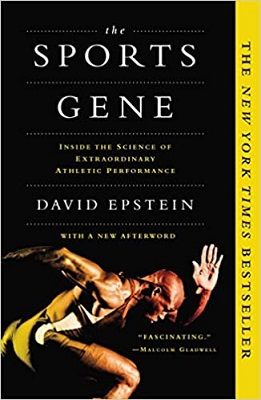In aiming to understand the different paths folks take in trying to make their mark in the professional world, I came to the book Range: Why Generalists Triumph in a Specialized World by David Epstein. Jim Holt in The New York Times offered the following praise at the time Range was released in 2019, I became interested: “Although the book unfolds according to a formula that has become familiar — story, study, lesson; rinse and repeat — the storytelling is so dramatic, the wielding of data so deft and the lessons so strikingly framed that it’s never less than a pleasure to read.”
 (Range: Why Generalists Triumph in a Specialized World by David Epstein is the subject of this review).
(Range: Why Generalists Triumph in a Specialized World by David Epstein is the subject of this review).
Range: Why Generalists Triumph in a Specialized World serves as at least the second book by David Epstein that looks into the notion of specialization and turns the notion on its head. (The other is The Sports Gene: Inside the Science of Extraordinary Athletic Performance, which asked readers to consider whether athletic dominance is a matter of nature or nurture). In challenging the notion that one must specialize early and stick with that notion forever more, David Epstein calls for trying many things until finding a specialization that matches your interests.
 (Jim Holt wrote the review in The New York Times that prompted me to read Range: Why Generalists Triumph in a Specialized World by David Epstein).
(Jim Holt wrote the review in The New York Times that prompted me to read Range: Why Generalists Triumph in a Specialized World by David Epstein).
As stated in this Nicole Serres (formerly Nicole Smartt Serres) article from the Forbes Magazine website, Epstein is arguing in contrast to the 10,000-hour rule from Malcolm Gladwell‘s book Outliers: The Stories of Success. The notion argues for having the range of many life experiences to avoid being so locked into a single means of thinking about the world. That is, having other life experiences allows for building analogies that can be brought to bear for problem solving that, in the presence of many like minded thinkers, would form blind spots. As Jim Holt mentions, the story, study, lesson approach makes for a readily understandable means of seeing the cumulative common sense rationale that the narrative style of Range: Why Generalists Triumph in a Specialized World hopes to have the reader understand. In the language of Epstein, the notion is to acquire the “conceptual reasoning skill that can connect new ideas and work across contexts.”
 (David Epstein also wrote The Sports Gene: Inside the Science of Extraordinary Athletic Performance, which asked readers to consider whether athletic dominance is a matter of nature or nurture).
(David Epstein also wrote The Sports Gene: Inside the Science of Extraordinary Athletic Performance, which asked readers to consider whether athletic dominance is a matter of nature or nurture).
Epstein later argues that “[l]earning environments in the real world tend to be “wicked” — so narrow specialization does not lead to mastery and can even lead us astray.” To address that wicked world out there, Range: Why Generalists Triumph in a Specialized World successfully makes the case for not being so specialized, or siloed, that more generalized folks pass you by. This notion, too, has been one of the arguments about robust business organizations that I have encountered more than once in the knowledge sector, so there’s that notion that appeals to my common sense as well. I rate Range: Why Generalists Triumph in a Specialized World by David Epstein at 4.25-stars on a scale of one-to-five.
Matt – Saturday, May 2, 2020

One thought on “David Epstein and the book ‘Range: Why Generalists Triumph in a Specialized World’”